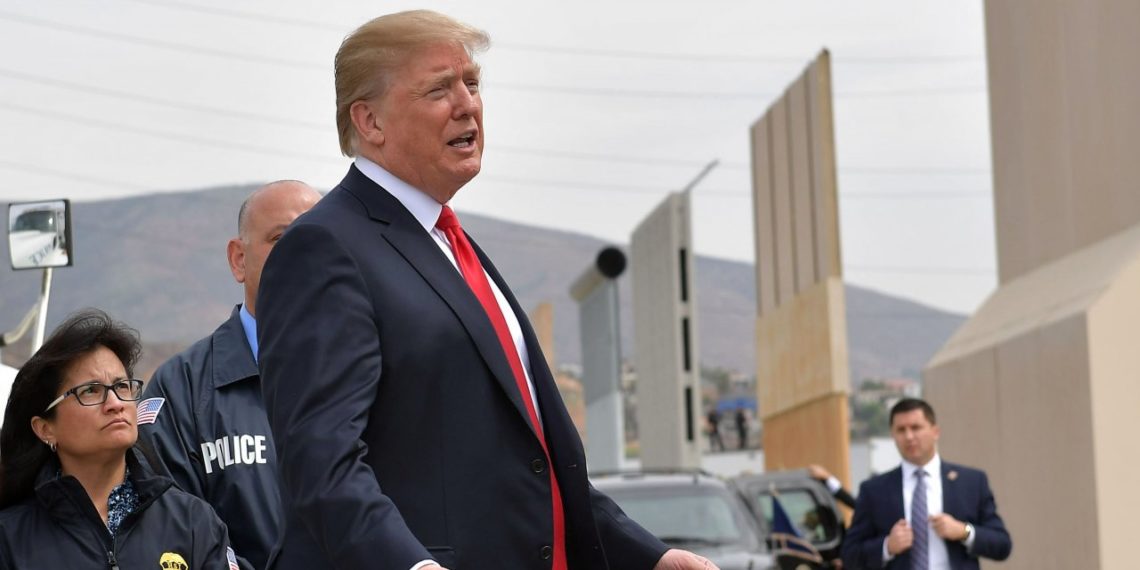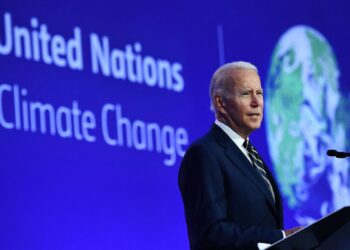On Monday night, President Trump announced via Twitter that Immigration and Customs Enforcement (ICE) would begin removing millions of undocumented immigrants in the United States next week.
According to the Pew Research Center, there were over 10 million undocumented immigrants living in the U.S. as of 2017 who could potentially be affected by such a large scale deportation sweep. Though Trump tweeted that millions of deportations are coming, the logistics of actually doing so would exceed ICE’s capacity, according to former ICE officials.
“They will be removed as fast as they come in,” Trump tweeted. “Mexico, using their strong immigration laws, is doing a very good job of stopping people long before they get to our southern border. The only ones who won’t do anything are the Democrats in Congress. They must vote to get rid of the loopholes, and fix asylum! If so, Border Crisis will end quickly!”
In order to understand the implications of this announcement, The Globe Post spoke to Dr. Robert Castro, a political science professor at California State University Fullerton with a background in immigration law and policy.
Q: What are the implications of President Trump’s announcement and how does it differ from previous ICE policy?
Castro: It’s interesting for several different reasons. First and foremost, it really does illuminate how complicated, organic and unforgiving immigration enforcement can be. In his tweet, the president was referencing ICE’s targeted enforcement operation and what’s interesting is that he publicly signaled the implementation of this kind of expansive apprehension and removal program.
Much of these enforcement operations are typically very secretive in nature. My understanding of this particular protocol is that it’s going to focus on families that have been issued final removal orders. Final removal orders are typically issued after all hearings and appeals have been exhausted. Typically and conventionally, the law gives ICE 90 days to remove individuals once they have received final removal orders. Often times on a day to day basis it’s much later. My initial response was “how expansively is this TEO going to be applied and is it going to include folks who did not attend their master calendar hearing and were tried in absentia?”
Q: How would that work?
Castro: ICE will typically send a notice to appeal which is a charging document to people they suspect are in the nation illegally. That provides them notice of the charges being filed against them and where the [master calendar] hearing is going to take place. I believe it also includes information on their right to bring counsel (not government appointed) if they can afford it. Folks that do not appear on the court date as designated in that charging document are then tried in absentia. If the respondents don’t attend, the court can actually issue a final removal order right then.
Q: Why wouldn’t someone attend their master calendar hearing?
Castro: Folks don’t attend for a number of reasons. Sometimes they’re sick. In other instances, they have childcare issues or transportation issues and quite frequently they’ve moved. When they move, they’re supposed to notify the courts within five days, but that doesn’t happen all the time. A pretty fair share of people that have entered illegally are illiterate, meaning they can’t read or write in either Spanish or English, so they’re not going to understand these orders.
This really illuminates the critical need for assigned counsel in these civil removal proceedings. Counsel that can appear in your absence and explain the nature of your absence. They can ask for a continuance and they can make sure that you preserve the right to appeal in the event that the judge issues an order adverse to your interests.
“I found it a bit curious that he tweeted this out right before the launch of his 2020 campaign.”
Q: How feasible would it be to carry out a deportation effort as outlined in President Trump’s tweet?
Castro: I found the tweet really interesting because it seems to suggest a scale of removal operations that frankly is well beyond the actual capacity of ICE. If you look at the total number of ICE initiated removals during the Obama Administration, it was averaging about 409,000 a year at its highest point. [Trump] is talking millions at this point in time. I found it a bit curious that he tweeted this out right before the launch of his 2020 campaign and my spider sense began tingling.
Q: What do you mean by that?
Castro: I wonder if this is a credible, legitimate operation or if this is just political spectacle. It put a spotlight on ICE’s enforcement operations which are done, again, oftentimes very much below the radar. A practical consequence is that [Trump] was actually tipping off immigrants as well as sanctuary jurisdictions that are interested in evading apprehension. In kind of a funny, odd way, it was also putting agents at risk because he was signaling “okay well, we’re coming after you.” It also raised the specter of family separations.
Q: How is that?
Castro: I thought this was going to be a problem for the mixed-status families … families where the children might be American citizens because they were born in the nation. Section 1 of the 14th Amendment contains what is known as the birthright citizenship clause. Basically, if you’re born within the jurisdiction of the U.S. you’re automatically a citizen. That doesn’t transform parents who may be undocumented into citizens.
What’s going to happen to small children whose parents are apprehended in this sort of large scale, sweeping national raid? Will they end up following their parents to their nations of origin? Will they remain here with relatives? If they have no relatives, would they then be transferred into state foster care systems? Lots of uncertainties and unknowns here. If you recall the last time family separations were in the headlines, it was wildly unpopular across the political spectrum. I’m wondering whether or not the president is really begging for bad juju here because it didn’t work out well for him last time.
“What’s going to happen to small children whose parents are apprehended in this sort of large scale, sweeping national raid?”
Q: Would this immigration sweep have any implications for U.S. citizens?
Castro: There’s a pretty ugly past history that whenever you have expansive immigration sweeps taking place, U.S. born Latinos are at risk for being detained under suspicion that they’re in the nation illegally. U.S. born Latinos often possess the same kind of physical characteristics as do immigrants from Central and South America. There’s been quite a bit of scholarship that has documented this phenomenon. It’s troubling because these are our fellow Americans.
Q: How has the rate of border apprehensions changed in recent months?
Castro: There has been a real uptick … in terms of total apprehensions. From October 2018 to January 2019, the number of apprehensions along the entire southwest border remained pretty steady at about 50,000 a month. From February 2019 to March 2019, it increased from about 66.8 thousand to 92.8 thousand. There was really a distinct bump up from April 2019 to May 2019 where you have the number of apprehensions increasing from about 99,000 to about 133.000. A good portion of those are asylum-seeking families who have left their nations of origin.
Q: Why would these people want to seek asylum in the U.S.?
Castro: They’re being driven out by things like poverty, violence, and c\orruption. I know first hand having worked for RAICES, which is a pro bono immigration advocacy that renders legal counsel to individuals that are detained in federal immigration detention facilities. You have a situation in places like El Salvador, Honduras, and Guatemala where the gangs and the drug networks, otherwise known as transnational criminal organizations by ICE, run rampant.
At times they work in close partnership with the local government and in other instances, the governments are unwilling or unable to provide protection to their own population. A lot of people just flee from one day to the next from enormous numbers of killings, kidnappings and criminal extortion which are daily events. This has really changed the character of who’s showing up at the border.
“A lot of people just flee from one day to the next from enormous numbers of killings, kidnappings and criminal extortion which are daily events.”
Q: How has it changed exactly?
Castro: It’s a much more diverse population. For the longest time, it was principally Mexican nationals, but now it’s folks from Central America, Africa and the Carribean as well as folks from the Middle East. I tend to think what’s happening at the border, and what people are characterizing as a crisis is in part a consequence of the more stringent tone that the president has used in terms of his zero-tolerance policy. I know that it has fueled a backlog in the courts.
Q: How has that backlog affected immigration proceedings?
Castro: Right now you have approximately 850,000 active and pending cases. That’s swelled by more than 200,000 since the Trump administration came into office in 2017. In order to handle this tremendous caseload and overflow, the Justice Department has added judges but they haven’t provided the support staff for them. The support staff, everyone from the administrative folks to the interpreters, is the lifeblood and what makes everything go. There are fewer than 450 judges that oversee the administration of things like civil removals. When Jeff Sessions was attorney general added quotas on top of that, which really put judges between this rock and a hard place. I really do think that judges are interested in administering justice independently and fairly, but they’re really forced to operate in this pressure cooker in a very time sensitive manner that does not lend itself to fair processes.
More on the Subject
Trump Says US to Begin Removing ‘Millions’ of Undocumented Immigrants






















